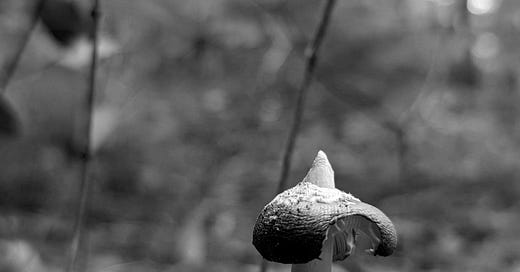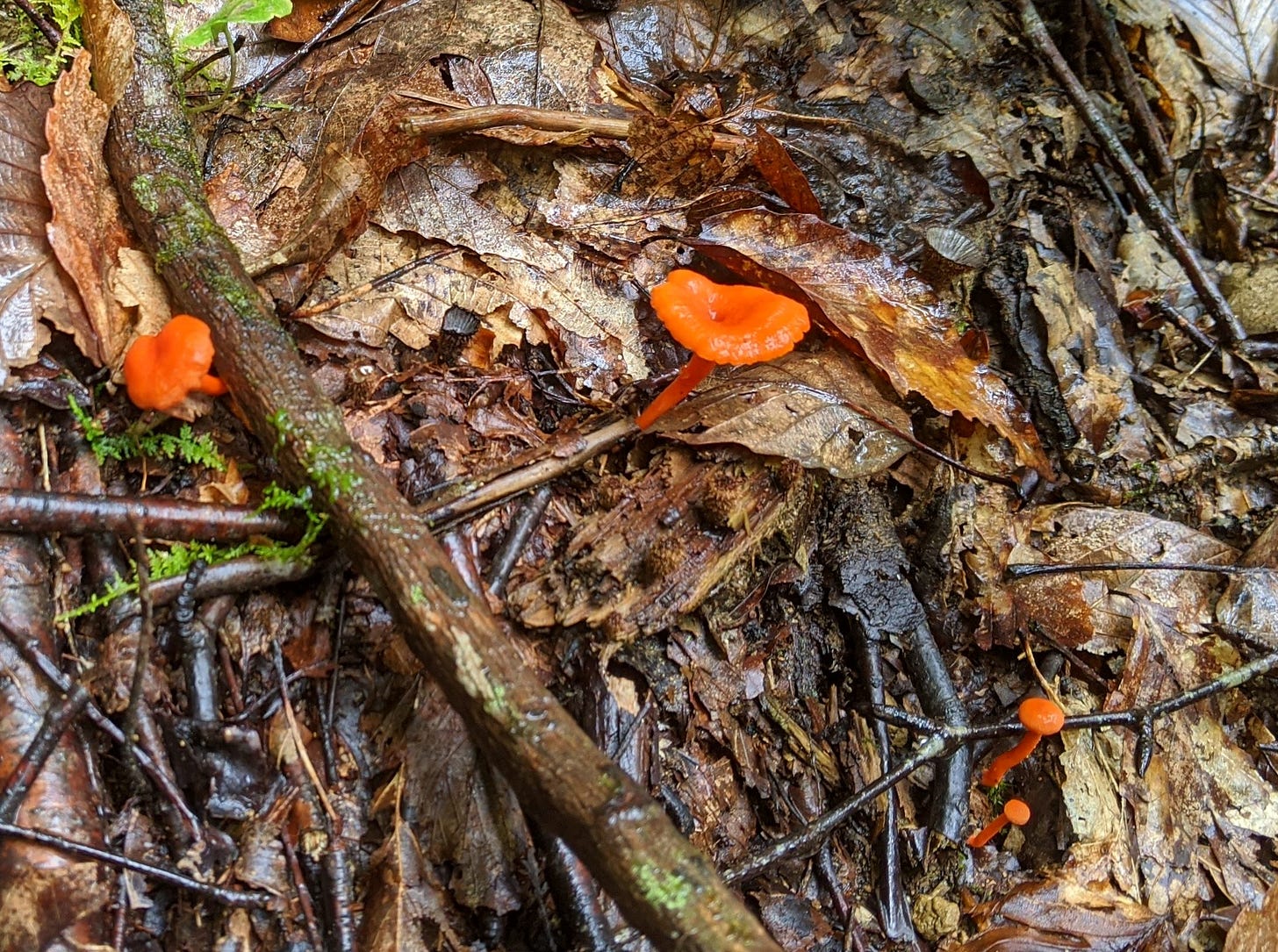It’s that time of year when I oscillate between peaks of sentimentality and depths of icy grief about the state of my community. Do you ever get that feeling in December?
Christmastime with my children is a joy. They are painting pottery and hanging paper chains and dozing off in our arms in the dazzle of the tree most nights. They’re getting bigger every day, and harder to lift, but they still play along and pretend to sleep when I heave them over my shoulder and carry them to their beds. It’s a silent game we play to deny the passage of time.
Life inside is idyllic. At the same time, as I look back on the year outside our doors, I see a lot of devastation. Another year of inaction on climate change that will make our children’s lives measurably worse. Another bipartisan record-breaking handout to arms manufacturers and death dealers, also known as the National Defense Authorization Act. Another year of COVID-19, of brain fog and long COVID and mass casualties becoming intractable facts that the young and old and immunocompromised will simply have to deal with, due in no small part to our state governments’ naked prioritization of capital over human life.
In the mornings when my kids were at school and the house was too quiet before I started work, I would try to distract myself from dark thoughts. On the final day of school last week I stopped by my friend’s house and he offered to show me his mushroom growing operation, and of course I said yes. He’s a steadfast and generous-hearted leftist organizer, one of the people I admire most, and usually we talk about socialist stuff when we hang out, but this time I really wanted to see what he was growing in the dark in his laundry room.
In a clear plastic tent with a humidifier and a filtered vent, he showed me jars overflowing with off-white tufts of fruiting bodies, like sea anemone on land: lion's mane.
He showed me another cabinet full of sterilized substrates and plastic syringes for injecting mushroom spawn into them. He tried to explain the basics to me, then he became more animated as he talked about how oyster mushrooms could effectively break down wax-coated cardboard, the bane of recycling programs and filler of landfills everywhere.
In the space of a 10-minute tour, what started as a hobby turned into daydreaming about how we might grow a better world. He couldn’t help himself.
Without losing sight of the most important properties of mushrooms (they grow on garbage and taste delicious in a risotto), I want to pause this holiday season and reflect on the metaphoric significance of mushrooms.
One popular metaphor is that the vast underground networks of mycorrhizal fungi in forests serve as the internet of trees. The idea goes back to a now-disputed 1997 study led by Dr. Suzanne Simard that showed how certain compounds marked with radioactive carbon flowed between Douglas fir and paper birch trees, apparently following the networks of underground fungi that wrap themselves around tree roots in a symbiotic exchange.
Simard’s work made a splash in 1997 when Nature published her team’s findings and proclaimed the existence of a “wood-wide web” on the cover.
The findings of that paper have since been partly disputed and tempered with exceptions, including by some of the original paper’s own co-authors who say they failed to prove that fungi were mediating the transfer of the carbon — but the concept has had a long life in pop culture. It found a new audience in 2015 when the German forester Peter Wohlleben published his bestselling book The Hidden Life of Trees, and again last year, apparently, thanks to the feel-good comedy show Ted Lasso.
“We used to believe that trees competed with each other for light,” says a character named Coach Beard in Season 2, Episode 11. “Suzanne Simard’s field work challenged that perception, and we now realize that the forest is a socialist community and trees work in harmony to share the sunlight.”
I haven’t seen the show and don’t know how that line fits in the context, but apparently it had enough cultural reach to make a few mycologists cringe, according to this piece in the New York Times.
“The true story is very interesting without this narrative put on it,” said Dr. Justine Karst, a University of Alberta mycologist and internet-of-trees skeptic.


Another mushroom metaphor doesn’t make any sweeping scientific claims, but instead uses the basic layman’s knowledge about mushrooms — that they grow in the dark — to describe the work of activism.
The writer and activist Rebecca Solnit talks about mushrooms in her book Hope in the Dark: Untold Histories, Wild Possibilities, which I can’t stop raving about and buying copies of for my friends. This comes from the foreword to the third edition:
[A]fter a rain mushrooms appear on the surface of the earth as if from nowhere. Many do so from a sometimes vast underground fungus that remains invisible and largely unknown. What we call mushrooms mycologists call the fruiting body of the larger, less visible fungus. Uprisings and revolutions are often considered to be spontaneous, but less visible long-term organizing and groundwork — or underground work — often laid the foundation.
One of Solnit’s theses is that the stories we tell about ourselves matter. Solnit’s mushrooms, like Lula’s spring roses, are metaphors for a tempered and enduring hope, based in an acknowledgement that the world will cut you down but justice will see the light of day. Vast networks of unconquerable solidarity, growing in dark and disgusting places, are the sort of connections we can aspire to build. These networks will survive when we are dead and gone.
I’ve been trying to avoid the subject by rambling about mushrooms, but 2022 was the first year of my life when I was not a part of a Christian church. Christmastime feels empty.
My family and I were part of a beautiful, LGBTQ-affirming, justice-oriented, life-giving church community the likes of which we never thought we’d find in South Carolina. The three years we spent with that church were the only years when my community’s spiritual values and my own political values did not feel like they were in constant irresolvable tension.
The church, which was a small “plant” as they say, ceased to exist in the spring of this year after some internal conflicts that I still don’t completely understand, and which still bring me a great deal of grief. Thinking about going back to church brings my family waves of sadness, anger, guilt (on my part), and loss, so we don’t go around looking for a new church on Sunday mornings.
Living without a church means living without the central metaphor of communion or the rhythm of the liturgical calendar. It means viewing reality without my primary lens of meaning-making, and the bare facts are grim without faith to explain them away. Maybe I was a fool. Maybe church was an opiate and I was addicted to meaning.
Last week Christians on our city council handed $2 million worth of mass surveillance equipment to the cops without waiting to hear the final results of a racial bias audit. Down the road last month, Christians on the Berkeley County School Board passed a ban on “critical race theory” as defined by racists and laid the groundwork for mass book banning. Most of the teachers I know are bone-weary of the constant attacks on their profession and ready to justifiably quit. Most of the trans and queer people in my community are afraid or pissed off or making plans to seek refuge, and the Christian church is primarily and inextricably to blame.
Tonight is the longest night of winter in the northern hemisphere. The sun sits low in the sky by day. Tomorrow will bring a little more daylight, and the next day will bring a little more, but we will hardly notice the difference. These are dark days with no relief in sight.
Above ground most plants look dead and the animals seek shelter from the bitter cold. Parts of the earth look as desolate as the moon. Something is alive under the surface.
***
The mushroom photos are by me.
The 2022 Weirdly Specific Holiday Book Guide is here.
If you were waiting for me to say something about psychedelic mushrooms, I’m sorry to disappoint. I did record a podcast with someone who took psilocybin mushrooms therapeutically as part of a project to transform his life and politics through radical empathy. You can listen to that at the link below or on Episode 2 of the Brutal South podcast, available wherever you find such things.
Brutal South is a free weekly newsletter about class struggle and education in the American South. If you would like to support my work and get access to the complete archive of subscriber-only stuff, paid subscriptions are $5 a month.
Twitter // Bandcamp // Spotify Podcasts // Apple Podcasts // Bookshop








Sorry about the loss of your church. Since my early twenties, I drifted away from my church. Not so much out of theological issues, but a lack of faith on my part. I didn't miss it at the time, but I do miss the hymns and ritual around Christmas, and do find myself wishing I had a more spiritual side now as I approach 40. But it just doesn't seem to be there. No easy answers for this kind of thing. I've enjoyed your writing this year, Merry Christmas.
Circular is the church you're describing - LGBTQ affirming, justice oriented, family friendly. Did you visit it and find it lacking?